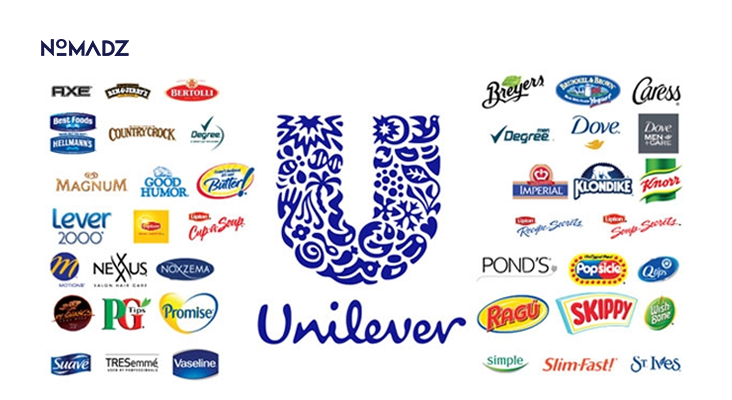Unilever’s ‘Social-First’ Strategy: A Blueprint for Modern Marketing
In the digital world, where everything is changing very quickly, the brands have to change more rapidly than ever before. Unilever has become one of the leading companies in the world to redefine the way marketing relates to the audience. The brand has captured the attention of the world through its Unilever social-first strategy, which has transformed how companies around the world utilize social media, creators, and data-driven insights to dominate the marketing game.
The strategy is not merely being online but considering social-first in all aspects of product launches, consumer dialogues, and so forth. Let us see how this new blueprint is defining how brand marketing is going to be in the future and establishing new benchmarks in all fields.
What Is Unilever’s Social-First Strategy?
In the most basic definitions, the Unilever social-first strategy means that the campaigns, content, and communication must be based on social media. Unilever writes stories that begin on the social networks where people spend most of their time instead of converting the TV or print campaigns into online platforms.
The style is less focused on presentation, more so on authenticity, relatability, and two-way interaction. Because it is aware of current trends and feedback from consumers in real-time, the company will be able to guarantee that its brands will talk to people and not send them generic information.
Also Read: Importance of Media Agencies for Modern Marketing
The Shift from Traditional Marketing to Community Building
The old school of advertising used to be based on reach and repetition – purchasing ad space and hoping somebody notices you. Unilever’s social-first approach, on the other hand, is concerned with community and mutual relationships.
The advertising is not the foundation of the campaigns of Dove, which glorify the beauty of real women, and Ben and Jerry, whose messages are socially friendly. Another pillar of successful brand marketing today is the focus on consumer values, which are the sustainability, inclusivity, and authenticity that the company is also exploiting.
Unilever does not force consumers to believe in something, but rather invites involvement. The interactive practice has made the audience become brand ambassadors, increasing the coverage by organic interaction.
Influencer Partnerships That Drive Impact
The second one is that the Unilever social-first strategy is based on meaningful influencer partnerships. The company also works with creators who align well with the brand, and not just after follower numbers.
Unilever is of the belief that it is the creators who understand their audiences like no one else. Unilever will not meddle with the influencers as they will have the freedom to be creative, and this means that the sponsored content will be genuine, engaging, and organic. Whether it is the beauty influencers discussing the skincare routine with Dove or sustainability creators discussing sustainable practices with Seventh Generation, all of these collaborations establish credibility and trust.
Such partnerships are indicative of a broader trend, namely the replacement of the classic deals between companies and celebrities with community-based impact, in which authenticity generates awareness and conversion.
Innovation in Campaign Design
All Unilever social-first strategy initiatives are based on innovation. In an attempt to reach younger and more digital-natives, the marketing departments of the brand are trying different types of formats: short-form video, interactive polls, AR filters, and even gamified content.
Indicatively, the application of TikTok and Instagram Reels by Unilever has transformed the way that international brands demonstrate creativity. Unilever does not impose long advertisements but aims at creating snackable, shareable moments that are so appealing to look at. This reactive system of content creation aids the company to react to trending events or cultural passing within a very brief time span, thus making its marketing timely and relevant.
Agile marketing is also characterized by the ability of the company to make real-time changes to its campaigns by using data analytics and other forms of social listening.
Agile Marketing: Fast, Flexible, and Audience-Driven
Unilever’s social-first strategy works best on agile marketing, which is the capability to make pivots, test, and optimize, according to real-time performance. Gone are the days of planning for a year. Rather, Unilever marketing teams can constantly gauge engagement, monitor sentiment, and optimize creative resources within days or even hours.
Such flexibility makes the campaigns remain relevant in a fast-changing social environment. Unilever not only observes when consumer behavior changes it also reacts. The speed of its brand marketing in the case of major cultural events and trending conversations shows how agility enables closer bonding.
How Unilever’s Social-First Approach Inspires the Industry
The model of Unilever has been an inspiration to other companies due to its success. The Unilever social-first strategy offers valuable insights to any brand that would like to thrive in a digital-first world:
- Begin with Social Insights– Develop campaigns on facts, not guesses.
- Focus on Authenticity – Select creators and stories in line with brand values.
- Foster Interaction – Produce the content that will engage the audience, not passively.
- Be nimble – Test, change, and improve campaigns according to real-time feedback.
- Lead with Purpose– Incorporate societal causes that are appealing to your society.
These values are not confined to the global scope of Unilever, as even small companies may apply them to improve their digital relationships.
Also Read: Everything You Need to Know About Marketing Automation
The Future of Marketing Is Social-First
As consumers move their interest towards the internet, the social-first strategy adopted by Unilever demonstrates that the new marketing strategy is founded on connection, rather than on communication. Gone are the days of one-way communication; a brand is no longer just to speak to the audience; it is also necessary to listen to and create with it.
Unilever will be the most successful in the new marketing excellence by investing in innovation, data-driven insights, and real-creator collaborations. Its combination of brand marketing, influencer partnerships, and agile marketing practices is a roadmap that any progressive brand can follow.
Conclusion
Unilever’s social-first approach is not merely a change of mindset but a change of marketing. It is a wake-up call to brands that it is time to be flexible, authentic, and human. Unilever has perfected the ability to make every post, reel, and campaign unique and meaningful in a world in which consumers desire to become part of the story.
The blueprint of modern marketing that Unilever plans to use in the continuously developing digital world is going to be the guiding light of the brands that are willing to be relevant, relatable, and real.









Leave feedback about this